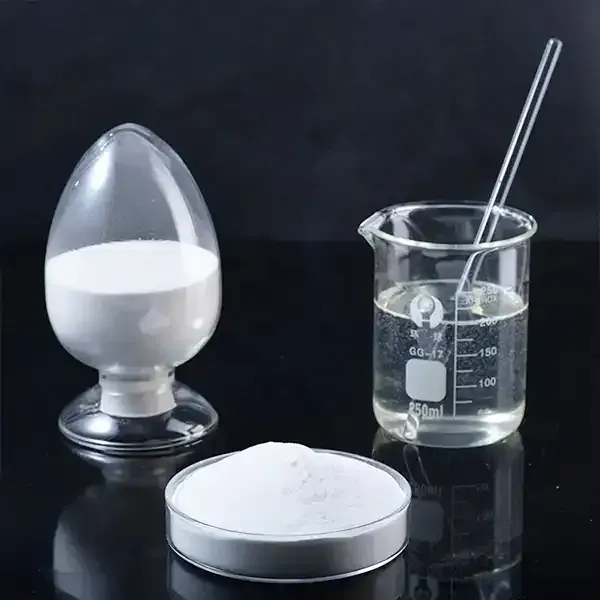Understanding Hydroxyethyl Cellulose Applications and Benefits
Hydroxyethyl cellulose (HEC) is a non-ionic, water-soluble polymer derived from cellulose, a natural polymer obtained from plant cell walls. Its unique properties make it a versatile ingredient used across various industries, including pharmaceuticals, cosmetics, food, and construction. In this article, we will delve into its characteristics, applications, and the benefits it offers.
Composition and Properties
Hydroxyethyl cellulose is synthesized through the etherification of cellulose, which involves the introduction of hydroxyethyl groups into the cellulose chain. This modification results in enhanced solubility in cold water, unlike unmodified cellulose, which is insoluble. HEC appears as a white, free-flowing powder and is known for its thickening, gelling, and stabilizing properties. Its ability to form viscous solutions even at low concentrations makes it a highly sought-after ingredient in many formulations.
One of the key advantages of HEC is its pseudoplasticity; it exhibits a decrease in viscosity under shear stress, making it easier to spread and apply in various contexts. Additionally, HEC is non-toxic, biodegradable, and compatible with a wide range of other polymers and ingredients, further enhancing its utility.
Applications in Various Industries
1. Pharmaceuticals In the pharmaceutical industry, HEC is commonly used as a binder, thickener, or stabilizer in formulations such as gels, creams, and ointments. Its ability to retain moisture makes it ideal for products designed to hydrate the skin. Furthermore, HEC is used in controlled-release formulations, allowing for a gradual release of active ingredients over time, which improves therapeutic efficacy.
hydroxyethyl cellulose

2. Cosmetics and Personal Care The cosmetic industry utilizes HEC for its excellent thickening and emulsifying properties. It is often found in products like shampoos, conditioners, lotions, and sunscreens. HEC not only enhances the texture and spreadability of these products but also helps stabilize emulsions, preventing them from separating.
3. Food Industry In food applications, HEC is employed as a thickening and stabilizing agent. It can improve the texture of sauces, dressings, and soups, providing a pleasant mouthfeel. Additionally, HEC is used in gluten-free products, helping to mimic the texture that gluten would provide in traditional baked goods.
4. Construction HEC plays a vital role in the construction industry, particularly in cement and mortar formulations. It acts as a water-retaining agent, which enhances workability and prevents rapid drying. This property is especially beneficial in hot and dry conditions, ensuring that the work can be completed without compromising the quality of the materials.
Environmental Impact and Safety
One of the significant benefits of using hydroxyethyl cellulose is its environmental compatibility. As a plant-derived polymer, HEC is biodegradable and does not contribute to environmental pollution when disposed of properly. It is also considered safe for use in various applications, with a low potential for irritation or allergic reaction, making it suitable for use in sensitive formulations.
Conclusion
Hydroxyethyl cellulose is a versatile and essential polymer with a wide array of applications across multiple industries. Its unique properties, such as water solubility, thickening ability, and non-toxicity, make it an ideal choice for formulations in pharmaceuticals, cosmetics, food, and construction. As industries continue to prioritize sustainability and safety, the demand for materials like HEC is expected to rise. Understanding its benefits and applications can help manufacturers create innovative products that meet consumer needs while maintaining environmental responsibility. With its continued evolution and adaptability, hydroxyethyl cellulose is positioned to remain a key player in various sectors for years to come.
-
Rdp Powder: Key Considerations for Wholesalers in the Building Materials IndustryNewsJul.08,2025
-
Key Considerations for Wholesalers: Navigating the World of Hpmc - Based ProductsNewsJul.08,2025
-
Hpmc Detergent: Key Considerations for WholesalersNewsJul.08,2025
-
Key Considerations for Wholesalers: China Hpmc For Tile Adhesive, Coating Additives, Concrete Additives, and MoreNewsJul.08,2025
-
Crucial Considerations for Wholesalers: Navigating the World of Construction MaterialsNewsJul.08,2025
-
Key Considerations for Wholesalers Sourcing Additive For Cement, Additive For Concrete, Additive For Putty from Additive Manufacturer Shijiazhuang Gaocheng District Yongfeng Cellulose Co., Ltd.NewsJul.08,2025




